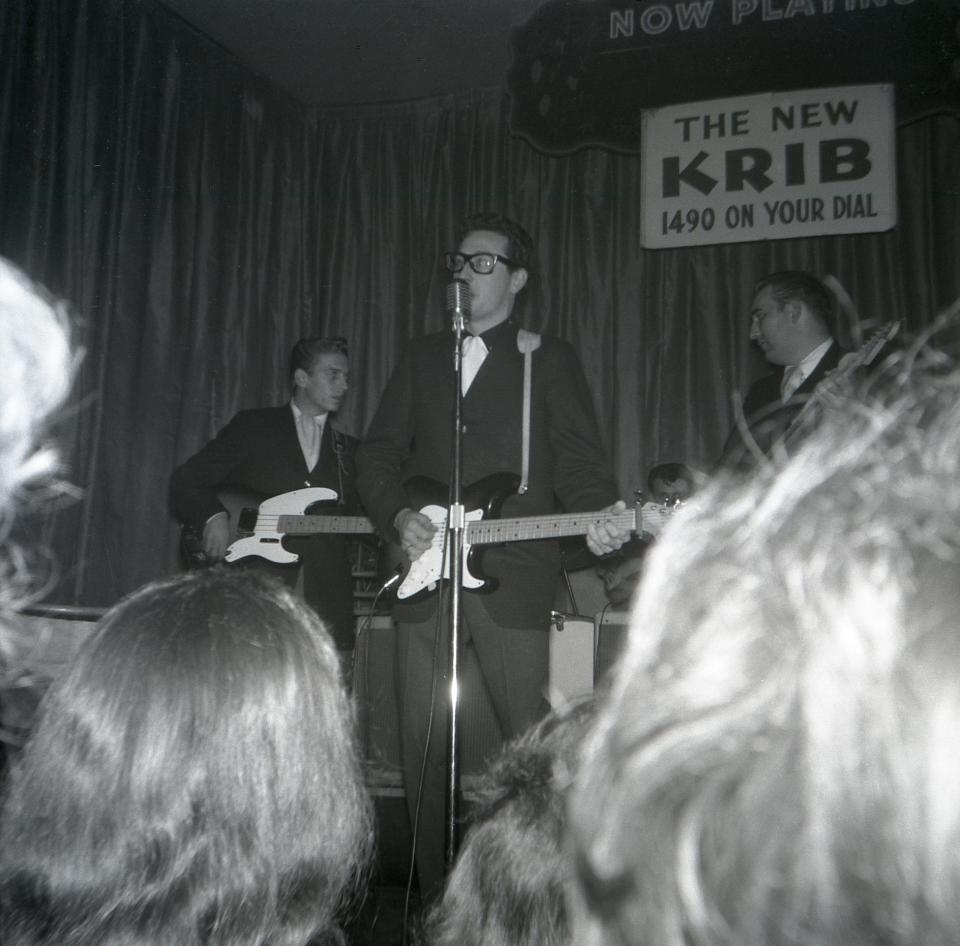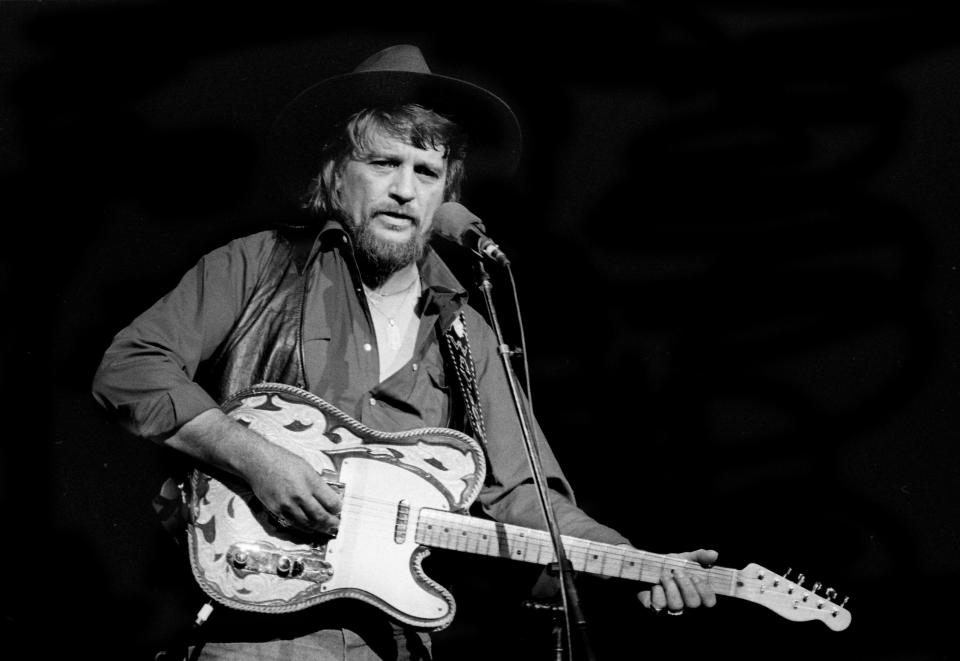'Why would he die and not me?' Waylon Jennings' life-changing choice on ‘The Day the Music Died’
Editor's Note: This story was originally published on February 3, 2020 to mark the anniversary of the plane crash that killed Buddy Holly, Richie Valens and J.P. “Big Bopper” Richardson.
Sixty-three years ago Wednesday, a 1947 Beechcraft Bonanza took flight from a small-town Iowa airport, carrying three pioneers of early American rock ‘n’ roll music.
The musicians, Buddy Holly, Ritchie Valens and J.P. “Big Bopper” Richardson, chartered a plane with hopes of cutting travel time between frigid Midwestern tour stops. A few extra hours of sleep waited at the destination, Moorhead, Minnesota.
But the plane wouldn’t make it out of Clear Lake, Iowa, crashing in a field just miles north of the Surf Ballroom, where the early rock stars wrapped a gig hours earlier. It was one of the first tragedies to strike modern American music and a figurative end to 1950s culture. Don McLean coined it “The Day the Music Died” in his 1971 opus “American Pie.”
And the events that unfolded Feb. 3, 1959, at the airport in neighboring Mason City, Iowa, haunted one of Holly’s bandmates — a forefather to country music’s original outlaw movement — for years to come.

MORE: What you need to know about Buddy Holly and ‘The Day The Music Died’
RELATED: What Dr. Bill Bass found in bones of the Big Bopper
A young Waylon Jennings, playing bass in Holly’s backing band for the “Winter Dance Party” tour that brutally zigzagged through upper Midwest cities, offered his seat on the plane to a sick Richardson.
The tour had been stranded on more than one occasion that winter and, before takeoff, Holly jestingly told Jennings he hoped the bus broke down. Jennings responded with “I hope your ol’ plane crashes.”
"I was so afraid for many years that somebody was going to find out I said that,” Jennings told CMT in 1999. “Somehow I blamed myself. Compounding that was the guilty feeling that I was still alive. I hadn’t contributed anything to the world at that time compared to Buddy.
"Why would he die and not me? It took a long time to figure that out, and it brought about some big changes in my life — the way I thought about things."
More: Sorry, 'American Pie,' but the music didn't die in Iowa. Just ask the fans.

Jennings and Holly bonded in the latter’s hometown, Lubbock, Texas. Jennings spun records on local station KLLL and Holly would visit during his shifts. In 1958, the “Peggy Sue” star would produce Jennings’ first record, a cut of Cajun standard “Jole Blon.”
The friendship led to Jennings picking up a bass for the "Winter Dance," a tour he told Rolling Stone in 1973 that Holly did only “because he was broke. Flat broke.”
The "Winter Dance Party" played on for two weeks after the crash, including that night in Moorhead. Jennings would continue his music career, forging a celebrated outlaw sound heard on 1970s records such as “Dreaming My Dreams” and “The Ramblin’ Man.”
Jennings was inducted into the Country Music Hall of Fame in 2001. He died from diabetes complications in 2002.
“Buddy was the first guy who had confidence in me,” Jennings told CMT. “Hell, I had as much star quality as an old shoe. But he really liked me and believed in me.”
More: 'American Pie' isn't a song about Buddy Holly, Don McLean says: 'It's about America'
This article originally appeared on Nashville Tennessean: Buddy Holly death: Waylon Jennings gave up seat on plane before crash

 money
money 